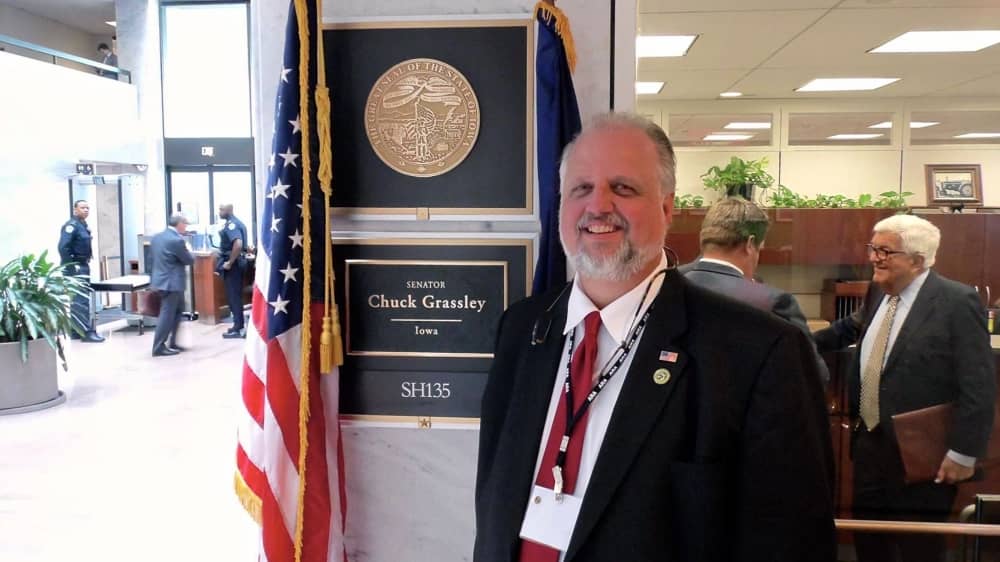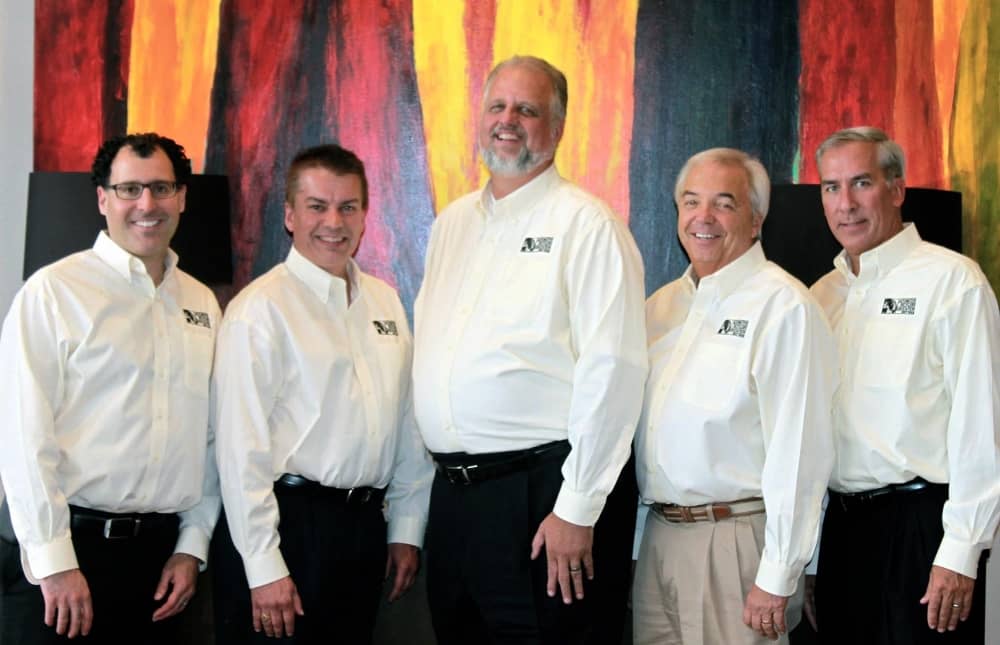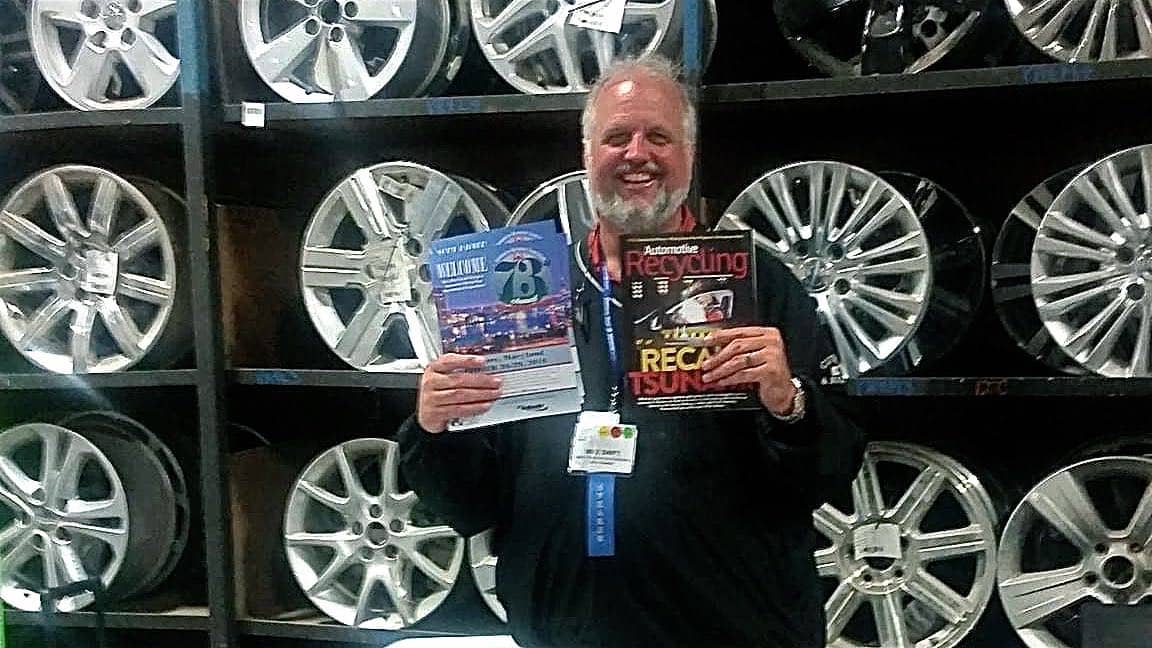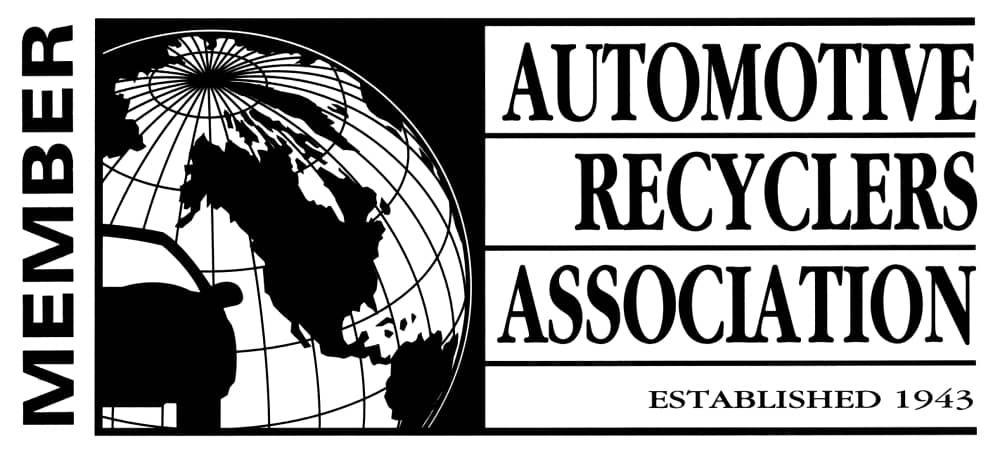The Recycled Part
Why You Can Trust Automotive Recyclers with Michael Swift, ARA President.
Did you know automotive recyclers provide quality, used auto parts at a fraction of the cost of new Original Equipment Manufacturer (OEM) replacement parts? In this edition of the Recycled Part, we spoke with Michael Swift, the current president of the Automotive Recyclers Association (ARA), about:
- The difference between Certified Automotive Recyclers (CARs) and “junkyards.”
- Why you can trust the auto parts you purchase from CARs.
- The successes and current challenges in the automotive recycling industry.
The ARA is the voice of the professional automotive recycling industry and their mission is to advance the automotive recycling industry and promote its beneficial effects on society.

Certified Automotive Recyclers (CARs) vs. Junkyards
B&R: Michael thank you very much for taking time to talk with us about the automotive recycling industry. We have a lot of ground to cover and a lot to learn from you. We want to cover your personal story in the automotive recycling industry so readers can get to know you better. But first, let’s cover some of the most frequently asked questions by people unfamiliar with the industry; "what are the key differences between a CAR and a junkyard," and "why can you trust the quality of used auto parts you purchase from an automotive recycler?"
Michael Swift (MS): First off, you’re probably going to notice an automotive recycler has a website, has a toll free phone number, has an email [where] you can contact them. That’s one way. You can look at their certifications, whether they’re an ARA member, or, there’s another thing we have, which is a Certified Automotive Recycler (CAR), we have those signs around that can tell you what it is. If they have an online presence, most of the time, you’re not going to go to a junkyard, you’re going to an automotive recycler. If they have a computer system, if, when you walk in, their front counter is fairly decent, if their parking lot looks nice, most of the time you can trust people like that. Google map it; does the yard look fairly organized? Ask about warranties, [many] have extended warranties.
Why You Can Trust a Certified Automotive Recycler (CAR)
MS: As an automotive recycler, we inspect the [auto] parts as best we can when they come in. We’re not trying to sell junk. Most of us sell alternators, starters, other parts with warranties on them. For an example, car batteries are expensive right now. We’ll sell them for $40 for a used one. But we’ll sell someone a lifetime one for $45. For $5 more you get a lifetime warranty. If you buy a junkyard part, you’re just buying junk and it might not work on your car. That’s not the deal with a certified auto recycler. Another thing we do is referrals to good auto mechanics. We can save people money by getting them a good used auto part. We’re not here to sell bad parts. We sell warranties on roofs through fenders. The misconception is that junkyard parts are just junk, and no one takes the time to inspect them. That misconception is just wrong.
B&R: Those are some helpful pointers Michael. It’s important for people to know CARs inspect the parts they sell and most come with warranties. Many potential customers hesitate to come to a junkyard because of the reputation they have of being pretty rough-around-the-edges. Can you speak to this hesitancy at all?
MS: Customer service; it’s communicating with people that really sets us apart. If they’re trying to look like professionals and act like professionals those are mostly auto recyclers you can trust. There are still junkyards [around]. But for us, like the B&R or [Swift’s Trails End Auto Recycling], there’s just some great recyclers around the country. We are viable; we’re a viable part of the auto repair chain and we need to look at it this way.

ARA’s Global Impact
B&R: You’re not only working to educate the American public about the presence and viability of the automotive recycling industry, but you’re also having a global impact as well. Recently, you hosted a delegation from China and guided them on a tour of one of B&R’s newest facilities in Henderson, Nevada. Can you briefly tell us about that?
MS: It’s refreshing when I go to a place like B&R in Henderson, Nevada. We had the Chinese delegation there and [we’re] just showing those people what we do during the day. And how much they appreciate what we do and meeting Carol [B&R Henderson store manger] there! What a great facility, and what a great family. The day I was with B&R, Carol showed us everything. There was nothing to hide. Most auto recyclers are a fascinating group of people that really are willing and open to share. When a salvage yard opens up their facilities for yard tours and that kind of stuff, and people don’t go and take them up on it, they’re really missing out. The coolest part [of being ARA president] this year, has been travelling around meeting people like Carol from B&R. What an awesome lady, what an awesome facility, what an awesome day that was with the Chinese delegation and walking around with her. Meeting people like that brings your faith back in; there are still great people in the world. The whole staff there was nice. That was just a wonderful day.
Successes in the Automotive Recycling Industry
B&R: Currently, in the Automotive Recycling industry, what is going right?
MS: For me, it’s the entire automotive recycling community. it seems like the one thing we’re really proud of it we help each other, we defend each other, and we are a family. Even if it’s your biggest competitor, I guarantee you, when push came to shove, you would drop everything, put those things aside, and help that person out. The people, the family, it’s definitely one thing we do right.
B&R: So you describe the ARA as a family of automotive recyclers. Is that correct?
MS: Absolutely! The people in the association are amazing, it’s really a family of independent auto recyclers. The other thing is certification; CAR. Back to the point where we were talking about the difference between a junkyard and a recycler, CAR will set you apart from that period. Our department of natural resources has jurisdiction over our environmental stuff here in the state. If they see that sign hanging on the front of our building, they know they can pretty much leave and don’t have to worry about it. We’ve already been taken care of and we’ve already done a self-audit.
Current Challenges in the Automotive Recycling Industry
B&R: Currently, what are the biggest challenges you see facing the automotive recycling industry?
MS: The [automotive] recall data. That’s one of our biggest things we’re working on right now, because the OEM’s dont even hardly recognize us as an industry, and we have millions of parts sitting at our facilities that could be recalled and we have no [way to know] other than safercar.gov to figure it out. And then the build sheet data, which it the last six [digits] of the VIN [Vehicle Identification Number] and it tells you everything on that vehicle from the gear ratios to the interior trims to the what kind of radio; everything on that car. Other entities have that information at their hand and, for some reason, ours industry doesn’t. It’s really holding us back...because we don’t have that tool like the rest of the world has where we get the last six [digits] of the VIN and tell you what you need for your car; you don’t need to tell us what part you need for it. We’ll tell you what kind of car you have and what part you need, to get you the correct part the first time; it’s safe, it’s not been recalled. Right now, we have to work harder than we need to, to ensure this.
B&R: What is it that stands in the way of that happening?
MS: Right now we just had a bill passed, in the house of representatives, on the FAST act, that the OEMs are required to provide us with the information. Right now we’re in the rulemaking. We need that information electronically, through Hollander, Check-Mate, Pinnacle, or whatever, to let our customers and employees know we have parts in recall. They can take them out of the inventory and the manufacturers can buy them back from us. That’s the key to this whole thing. There’s a law on the books now and we’re trying to keep things rolling in Washington DC.

MS: I’m passionate about the politics; about the wrongs that are in our industry that need to be righted. They’re pretty simple, like the manufacturers not giving us the recall data and the build sheet data. We should not be having to make new laws to require them to give us this information. But they’re not wanting to do it. They’re afraid that auto recyclers are going to infringe on their world. They look as us a competition instead of looking at us as the caretakers of the end of life vehicles; keeping track of these cars, where the automotive fluids goes, and that kind of stuff. They’re not doing it, but we’re taking care of the vehicles at the end of their life. We are a viable partner to the OEMs. We’re selling what they make; we’re selling plug-and-play parts. We are their cousin and we want to be recognized as such.
B&R: So you’re saying the OEM manufacturers are concerned about the used auto parts you sell competing with them?
MS: Right. They care about the competition. They say “why would you put some junk yard part on your car?” Well, they’re not ‘junk yard parts’ they’re ‘used parts.’ They’re just like used cars driving around. GM, Ford, Chrysler all certified used cars. A used car is made of 25,000 parts. So they’re certifying all the parts on that car. It’s not any different than what we do when we put a warranty a used auto part.
How to Support the Automotive Recycling Industry
B&R: What’s the main thing people in the automotive recycling industry can do to help fulfill your vision for the industry?
MS: Get involved. You have to tell your government representatives what you do. If you don’t tell them. Someone else is going to tell them. And you might not like the outcome. Now that we’re growing in momentum in this, we’re going to send packets to people and ask them to go to their senator's office and tell them who you feel about this today. They can just take an hour out of their day to explain to the representative's local office, hand them a packet, and explain to them why this is important to our industry and our country. Nobody else is gonna tell them what you do. You’re in there to talk about this. You’re their constituent and you’re their vote. If we don’t get involved, then one day something is going happen and you’re going to say, “why didn’t someone do something?” Well, why didn’t you do something?
B&R: Is there anyway the general public can support the automotive recycling industry?
MS: Use social media. Start sharing on Facebook. We all start helping by sharing on social media. Get involved, connect with government or industry officials. Be proactive. Go to these people and let them know about the industry.
Michael Swift’s Leadership Role and Journey in the Industry
B&R: As far as we understand, you entered into the the automotive recycling industry because it was your families business in Iowa. Your grandfather, Of “Orrie” Swift, started what was originally Swift’s Auto Salvage in 1940 which was then taken over by your father, Dale Swift, in 1975. You and your brother Steve worked with you dad until you ventured out on your own and purchased Trails End Auto Salvage in Des Moines, Iowa. Sometime after that, you purchase the original business your father was running and merged the two businesses into Swift’s Trails End Auto Recycling. It was shortly after you purchased Trails End that you became involved with leadership within the automotive recycling industry correct?
MS: Yes, from 2003 - 2008 I was on the Iown Automotive Recyclers (IAR) board and, after that, I was president of the IAR from 2008 - 2010. I was also a regional director for the ARA from 2008 - 2012. Then, beginning in 2012, I began serving on the ARA executive committee; then as ARA secretary, then treasurer, then as 1st Vice President. Finally, I became the ARA president for 2015-2016.

B&R: It sounds like there is a lot of room to grow in the automotive recycling industry! You’ve clearly had a leadership role now for a long time. Have you always seen yourself as a leader and what does leadership mean to you?
MS: For me leadership is getting the entire team involved. It’s a team effort, you get everyone involved in the team and then, when you accomplish something, at the end of the day it was the team effort; it wasn’t the “I” in team. For me that’s what leadership is; letting other people utilize their skills and utilize them to the best of their abilities. I think that’s what makes a good leader. I think I learned it from my father and my mother. The advantage I’ve had over other people is I’ve never had to go out and find a job. What I tell people is I was given the ball and told to run so that’s what I did. But I wasn’t a typical boss’ kid. If you didn’t work, you didn’t get paid. That’s just the way it was with my dad.
B&R: Is this leadership style the reason you have such a low employee turn-over?
MS: We’re paying these guys a decent wage. We provide uniforms and job, we buy them lunch every friday, we supply them with a full tank of gas, we reclaim at the salvage yard, and we give them a good discount on any parts they need for their cars. We keep employees engaged and let them know what’s going on. In these difficult times of business (which we’re trying to make better) they know that times are tough, they know that, so they’re trying to make that sale. If we don’t sell, nobody’s getting paid on friday. The shortest tenured employee I have right now is my son and he’s been here four years.
B&R: It’s been said “leaders are readers.” Do you agree with that and what are you reading or learning from right now?
MS: I agree. I read a lot of trade magazines. Whether it be Fender bender, ratchet and wrench, whether it’s recycler today, whether it's the ARA magazine. I read a lot of that stuff I like to keep informed of what’s going on, not only in the automotive recycling industry, but what’s going on in the repair industry, the collision industry, the insurance industry. I read a lot of the Mitchell reports, I read a lot of the CCC reports that they bring out if used auto parts are getting above 12%-13% of the auto parts industry market share. Leaders are readers. I enjoy reading about the different things going on in different industries.

Recommended Reading and Resources
B&R: For people who work in the automotive recycling industry, what recommendations do you have for them learn from?
MS: I believe that if people don’t read some of what I just mentioned, they’re missing the entire boat. I think that other thing that people miss too, is not going to the national or, at least, local Automotive Recyclers Association trade show or that kind of event. That’s where the best meetings are held. When you’re able to let your hair down and not be all apprehensive, to me, that’s the best place to get good information from. Learning more of the Hollander leadership, knowing the Check Mate (Car-Part.com) guys, talking to those people and keeping in touch with them really helps auto recyclers learn and try new approaches to business, especially in difficult times.
B&R: So you’re saying the most valuable aspects of the ARA meetings, is the authentic communication with people in the industry and the networking opportunities?
MS: Correct. That’s the key to this whole thing is the networking. If you talk to these people, you’ll learn so much more. We have all kinds of training, all kinds of stuff for them to learn, plus the networking stuff. I think some auto recyclers have lost all ideas of what these association meetings are about. They’re for us!
B&R: Thank you so much, Michael, for taking time to talk with us about the automotive recycling industry. You’ve given us a lot of good information to think about as well as a lot of ways for us to get involved and support this growing industry. We’d like to remind our readers to head over to the Automotive Recyclers Association website to get educated on who they are, upcoming ARA events, current issues, and what the certifications mean. Also, connect with the ARA on Facebook. Make sure to like their page and share the posts you find interesting. Keep a look out for the official ARA logo shown below!

B&R Auto Wrecking has 19 locations in Washington, Oregon, California, and Nevada to get you the right auto part, at the best price, as quickly as possible. You can pull your own parts, have them pulled for you to pick up, or shop online. Connect with us today on Facebook, Twitter, Linked In, Google, and eBay.